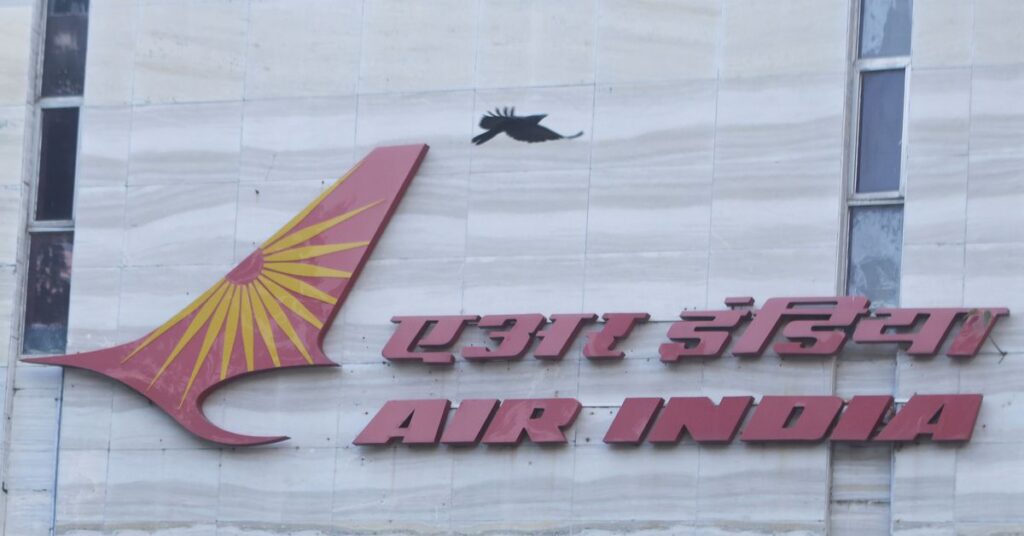BENGALURU/PARIS, Feb 14 (Reuters) – Air India’s record aircraft deal has put the Tata Group-owned airline in the league of aspiring global carriers.
On Tuesday, it provisionally agreed to acquire almost 500 jets from Airbus (AIR.PA) and Boeing (BA.N) to take on domestic and international rivals.
Striking the largest ever deal by one airline took months of secret talks carried out a stone’s throw from Britain’s Buckingham palace and culminating in a celebration over coastal Indian curries, according to people involved in the talks.
Confidentiality was lifted on Tuesday as leaders hailed the accord in a diplomatic embrace between leading G20 nations. Tata Group, which regained control of Air India last year after decades of public ownership, put out just six paragraphs.
Its low-key announcement illustrates a rising breed of private airline owners transforming a financially-risky Indian airline sector, alongside the publicity-shy founders of IndiGo.
Latest Updates
View 2 more stories
The deal was in the making for over a year, insiders said, recounting details of the process on condition of anonymity.
Serious talks began last summer and continued until days before Christmas when outlines were agreed. As the astonishing scale of the deal began to crystallise, Reuters reported in December the parties were nearing a record 500-plane agreement.
The epicentre of dealmaking was St James’ Court – a luxury Victorian hotel near Buckingham Palace in London’s West End.
In the hothouse atmosphere of a classic aircraft industry negotiating ritual known as a “bake-off”, negotiators from the airline, planemakers and engine giants camped out at the Tata-owned hotel and neighbouring suites for days at a stretch.
They were chasing a bigger slice of a fast-growing market that has seen many airline growth plans rise and fall.
Now, Boeing had a chance to restore its position in India’s single-aisle jet market and narrow Airbus’ large lead. Airbus wanted a bigger piece of the wide-body market led by its rival. With bulging order books, neither could sweep the whole order.
At stake was India’s bid to win back the custom of visitors and its own diaspora from highly efficient Gulf carriers. Politics set the context but talks were commercial – and tough.
“The convergence of the political will of the country to regain sovereignty of international connectivity, combined with the ambition of the mighty Tata … if things are done right it has all the ingredients to be really solid,” Airbus Chief Commercial Officer Christian Scherer told Reuters on Tuesday.
‘METHODICAL, TOUGH’
The contest for attention played out across London on a chilly day in December as Airbus found itself in talks with Air India on one side of the capital, while fighting Qatar Airways in court over the fate of similar A350 jets just two miles away.
Airbus and Qatar Airways later settled their contractual and safety row, but Air India jumped ahead of Qatar in the queue for smaller jets though sources say the Gulf airline also won hefty damages.
Negotiations led by Air India’s chief commercial and transformation officer, Nipun Aggarwal, and Yogesh Agarwal, head of aircraft acquisitions, often stretched into the night with sellers churning out new “best offers” fuelled by room service.
“Air India negotiated hard and the team is very sharp despite having no prior aviation experience. They compare with some of the best dealmakers in the business,” one person said.
A second person who watched the billions fall into place said the Air India negotiators were “methodical, tough and very sophisticated”.
The London negotiations ended with a dinner at the hotel’s Michelin-starred Indian restaurant Quilon, renowned for its seafood and coastal cuisine from places like Goa and Kerala.
While the major focus in any jet deal is the battle between planemakers, engines are often key and can speed or hold up the wider deal. Plans for announcements on the anniversary of Tata’s Air India takeover slipped as engine talks wore on.
The biggest overall winner, insiders say, is General Electric (GE.N) which picks up the lion’s share of the lucrative engine deals, with its CFM joint-venture with Safran (SAF.PA) beating Raytheon-owned (RTX.N) rival Pratt & Whitney on Airbus A320neos. Rolls-Royce (RR.L) also got a boost from the sale of 40 Airbus A350s.
Highlighting the long road to strategic deals in aviation, GE’s victory had been in the making for about 10 years.
In 2014, it won a tender for 27 engines for Air India A320s. Soon after it convinced Vistara to take on its engines for seven aircraft which later translated into an order for 70 planes. The turning point was IndiGo, which switched from Pratt & Whitney after technical issues that Pratt says have been resolved.
Analysts caution many obstacles remain to Air India’s plans. It needs better service and efficiency to make a serious dent in the powerfully entrenched hubs of Doha and Dubai.
But India’s potential will continue to lure dealmakers. CAPA India reports IndiGo is exploring its own order for 500 jets.
Reporting by Aditi Shah, Tim Hepher; Editing by Emelia Sithole-Matarise
: .


